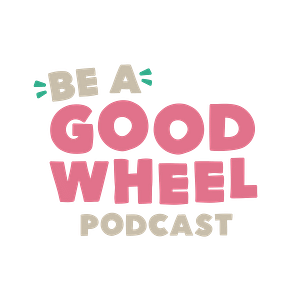Dr. Anthony Alessi
Concussion in Athletes:
Key Points From The Episode
Below are key points from our conversation with Dr. Anthony Alessi, recorded on June 6, 2024. Both the episode and points below are for informational purposes only and are not intended to replace professional medical advice. Please keep in mind that both the science and clinical treatment of concussions evolve rapidly.
Dr. Alessi has offered to help listeners find qualified providers where they are. You can send an email to amber@beagoodwheel.com, and I’ll forward your request. It may be worth having this information before you need it.
What Is A Concussion
- Traumatic Brain Injury (TBI) is an umbrella term that encompasses a range of injury from severe (e.g. penetrating injury) to mild, with concussion being the mildest on the continuum.
- Concussion is a transient neurologic syndrome that results from a biomechanical force applied to the brain.
- Concussion is characterized by a functional disturbance, rather than a visually apparent injury, which makes it more difficult to diagnose.
- Treating an athlete who sustains a concussion in their sport is different from treating a non-athlete, in part because the athlete is likely to return to their sport where there is a reasonable likelihood they will fall again at some point.
- Awareness about concussion has never been more prevalent, and while becoming overly worried or paranoid about concussion is not helpful, Dr. Alessi would prefer that people have a low threshold for seeking assessment and care.
Factors Affecting Prognosis
- Concussions take longer to heal in children, heal faster as we approach middle-age, and begin to take longer to heal again as we continue to age.
- Women tend to take longer to heal from concussion in general, but science does not yet have a mechanistic explanation for why.
- People with co-occuring conditions like ADHD, depression, or migraines, can also take longer to heal.
- The underlying health of the individual largely determines their prognosis for recovery after a concussion.
- There is currently no conclusive evidence to substantiate the use of supplements for reducing the risk or severity of concussion.
- While not conclusive, there is some evidence to suggest that neck strength can be protective, and strengthening the neck harms neither the athlete, nor their wallet.
- Getting proper assessment and care as quickly as possible is key (see more below).
How Do You Know If You Have A Concussion
- You don’t have to hit your head to sustain a concussion; for example, both linear and rotational forces imparted by a fall that does not include a direct blow to the head can cause injury to the brain.
- To determine whether a fall resulted in concussion while on the road is difficult to do, especially because the affected athlete may experience changes in cognitive function that impair their ability to accurately assess their own physical state.
- Third-party observers, like teammates, coaches, or race officials, can look for signs of neurological impairment, including changes in motor function of the limbs, in particular an unsteady gait.
- Assessment protocols like the Sport Concussion Assessment Tool or SCAT, can help determine whether an athlete should seek care; however, these generalized tests are not diagnostic, and in cases where an athlete took a hard fall and is displaying obvious signs of neurologic impairment, may be unnecessary in deciding to seek medical intervention.
Why Attend To A Concussion Quickly
- When a fall results in concussion, the body must immediately allocate substantial energy to repair damage at the cellular level.
- The energy required to initiate cellular repair means that, for example, if an athlete sustains a concussion mid-race and continues to race, the extreme energy demands on the body of repairing cellular damage and of racing will undermine both the repair and the performance.
- Diverting energy away from the initial repair to continue racing can amplify the cellular damage, increasing the time it takes to repair the injury, rehabilitate, and return to play.
- In contrast, making the difficult decision to stop racing or training if a concussion is suspected can allow an athlete to get the assessment and care needed for a quicker recovery.
What to Do If You Suspect Concussion
- First determine whether you need emergency care; if you've been cycling at high speed and you hit your head, go to the emergency room.
- It may be worth advocating for a CT scan if you’re in the emergency room; Dr. Alessi views the minimal exposure to radiation as being far less of a concern than possibly missing a critical diagnosis.
- If emergency care is not warranted, it’s fine to see you primary care physician, but it’s worth asking for a referral or seeking out a neurologist with expertise in seeing sports injuries, ideally someone who sees a lot of concussions in a lot of athletes.
- Whoever you seek out for assessment and care, make sure they create a personalized treatment plan according to your specific history and circumstances, including considerations for maintaining mental health and social connection.
- Every concussion is different, and the treatment of any concussion should reflect the unique characteristics of the symptoms, the circumstances of the athlete, and the athlete as a person.
- If your physician is recommending a standardized rather than individualized treatment plan, it’s worth seeking out a different specialist.
- Rest is crucial to allow the body to cover the energetic needs of healing the injury; however, for some athletes, very gentle aerobic exercise (e.g. on a stationary bicycle) and some cognitive stress—to tolerance in either case—may be more beneficial than complete rest.
- As important as it is to work with a qualified professional, it is just as important for the athlete to be honest with themselves and with their doctor about how they’re feeling and tolerating treatment.
